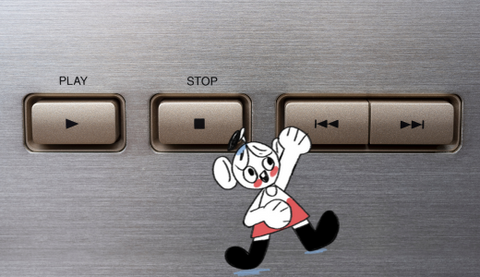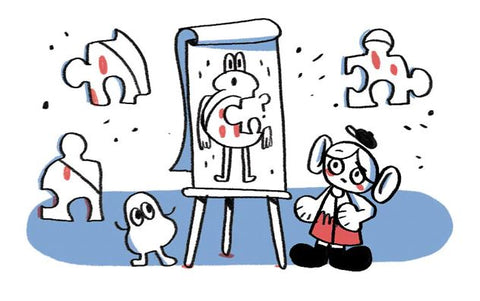By now, you've probably been in your fair share of remote sessions. The pros and cons of remote workshops have become clear.
Let's look at what's good and bad, and how the best of both worlds might be how we run workshops in the future.
Pros of remote workshops
1. Anyone from anywhere can attend
Remote work allows people from around the globe to take part. But it's not just geographical. It's inclusive of people with varying mental and physical needs.
A significant step to make the creative process more diverse.
2. Digital data is easier to store
No longer do we have to photograph a wall of illegible sticky-notes. With tools like Miro, the history of our workshops are cast in digital stone.
Digital workshops also remove physical restrictions. We no longer have to worry about wall-space, falling sticky-notes, and empty marker pens.
3. Lower overheads
Often the most painful part of a workshop is the planning. Now there's no need to find, book, arrange and tidy a physical space.
Without this administrative overhead, we can be more proactive. For example, a Fishbowl discussion typically requires a large space and a lot of chairs. Not the case with a Virtual Fishbowl discussion!
Cons of remote workshops
1. Low energy without a physical presence
Video conferences drain us. Our minds work overtime to compensate for the lack of physical cues we rely on to parse information. This phenomenon, documented as "Zoom fatigue" is wearing thin on a lot of us.
When we're drained, we become lethargic and unenthused—a recipe for disaster in workshops.
You get out what you put in. So if you have bored and tired participants, so too will the outcome of the workshop.
2. Tools have a learning curve
As intuitive as these virtual whiteboard tools are, for many, there is still a learning curve. What traditionally makes workshops so compelling is how easy it is for anyone to take part.
Now we have to design in a lot more time to get people familiar with the technology. Technical frustrations can put a dent into the rhythm and flow of a workshop.
3. We can't read the room
The biggest downside is the loss of our most vital sense: observation. It's much more challenging to get a sense of a room. Before, we can see if someone looks confused or bored. Now, we can only guess.
We've also lost the ability to eavesdrop on group conversation. Another trick up our sleeve is gone.
What does the future hold for workshops?
My prediction is that teams will adopt what I call 'Hybrid Workshops'.
We've seen how powerful and successful these digital tools are. So it makes sense that we blend them with physical spaces and human interactions.
What do Hybrid Workshops look like?
Laptops with a virtual whiteboard will replace sticky notes and sharpies. Miro could be broadcast on a big screen for all to see, piloted by the facilitator.
This way, we don't lose the physical aspect - which drives so much of our creativity and participation.
We keep the ability for anyone, anywhere to take part.
We save trees by not using so much paper, and all our work is in the digital cloud.
There's no such thing as the Perfect Workshop
With anything, there is a trade-off. There's something to be gained, and something to be lost. I'm sure in time we'll each find the balance that works for us.
In the meantime, you can make the best of the situation by learning everything you can about how to to run a great workshop and polishing up your facilitation skills.
I'd love to hear your prediction for the future of workshops. Let us know what you you think on Twitter.









